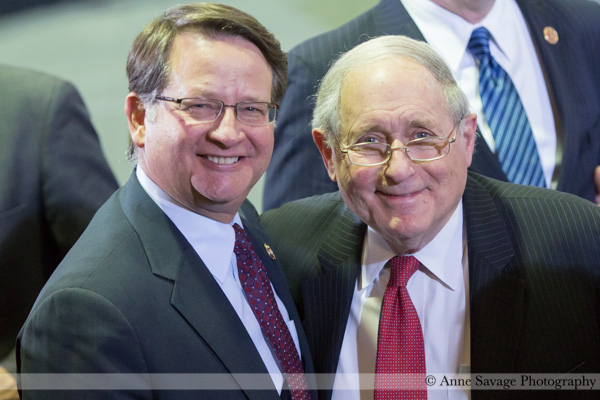
The nuclear deal that United States, the United Kingdom, France, Germany, Russia and China made with Iran is the epitome of giving peace a chance. Rejecting it would set us on a likely path to war. Accepting it gives us the hope of preventing Iran from ever gaining a nuclear weapon without a tragic, wasteful military conflict.
Of course, the agreement doesn’t remove any possibility of war. Iran could violate the deal, triggering a multilateral response. Sanctions should snap back and that could easily escalate to armed conflict. Basically, we’d be where critics of the deal want us to be today by rejecting this deal — except we’d have much of the world on our side.
Our European allies believe this deal is “as good as it gets.” If we refuse it, the chances of the sanctions regime holding are smaller than the chances of Terri Lynn Land ever running for statewide office in Michigan again.
Opportunities for war are endless, as are wars in the Middle East. Chances for peace are precious.
When you see Ted Cruz and Donald Trump holding a rally on the Capitol with anti-Muslim zealot Frank Gaffney opposing the deal, you should get a sense of what the opposition to this agreement is largely about: Some opponents’ real fear is that Iran won’t violate the deal. And rather than war, we’ll get another willing participant in the Nuclear Non-Proliferation Treaty.
That’s not to say that fears of the Iranian regime and suspicions aren’t legitimate. Despite being the home to tens of thousands of Jews, Iran continues to threaten Israel’s existence. But nuclear scientists are convinced that this deal — despite the largely fictional objections opponents continue to raise — would make it impossible for Iran to develop a weapon without observers knowing. And to fear otherwise requires believing that Iran is both cunning enough to deceive the world and suicidal enough to risk annihilation. Any concerns you may have about this imperfect but essential deal have probably been answered by physicists Rush Holt and Frank von Hippel who have staked their reputations on backing it.
Thankfully, Democrats seem to understand the opportunity we have.
“The White House on Friday expressed confidence that it has the support in Congress necessary to sustain a veto of a resolution to reject the Iran nuclear agreement,” Reuters reported Friday.
That’s good news but there is a greater issue at play here, The Washington Post‘s Greg Sargent reports:
According to a senior Senate Democratic aide, the discussions among undecided Senate Democrats are now focused on the idea that a veto-override fight could have serious long-term ramifications, making it harder for a future president to reach international deals if our ability to carry them out is seen as shaky, undermining our international credibility.
Here in Michigan, we’re very proud of Senator Gary Peters. He’s the only freshman Democratic Senator elected in 2014. When it comes to Michigan’s parents, environment and small businesses, we can always count on his vote.
But when it comes to the Iran deal, he’s not yet proven to be an equal to Senator Carl Levin, the giant of American politics he replaced. Levin was an early champion of nuclear negotiations and a comprehensive agreement. We’re sure Senator Levin would already have joined Senator Stabenow and dozens other Democrats in backing this agreement.
Senator Peters will be running for re-election in 2020, when Michigan will hopefully be re-electing Democratic president. His commitment to pragmatism and budget sanity will be confirmed by his support for diplomacy that could prevent losses of thousands of lives and trillions of dollars. Experts continue to argue that if negotiations fail, only a full-scale invasion would prevent a determined Iran from gaining nuclear arms.
Senator Peters is a great representative of Michigan and I hope he’ll join military leaders, arms control experts and members of the Jewish community who make awesome TV in this chance to permanently insure that the nuclear centrifuges that were allowed to begin spinning under George W. Bush never become part of an arsenal of war.
Let the Senator know you want to give peace a chance by contacting him.
[Image by the great Anne Savage.]



